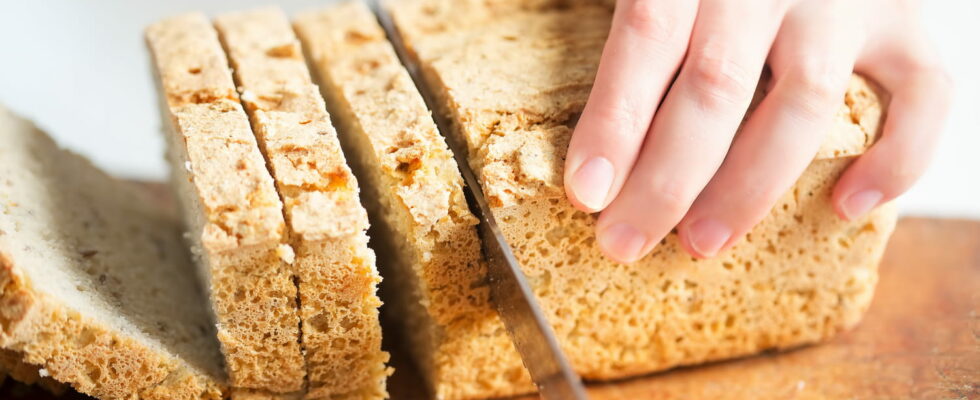Long forgotten but popular again, it is easily found in the “organic” sections of supermarkets.
Bread is one of the symbols of French identity. 82% of French people say they eat it every day according to a survey by the Cercle d’Etudes de Boulangerie Pâtisserie. While bread remains a good source of carbohydrates and energy, it is also criticized for being difficult to digest and for rapidly increasing blood sugar levels, which can, in the long term, contribute to the development of health problems (weight gain, diabetes, cardiovascular disease). That said, not all breads are equal. One of them, well known to athletes but less so to the general public, is said to have the dual advantage of being very digestible and beneficial for blood sugar levels.
Its particularity is that it is not made from cereals reduced to flour but from sprouted and dehydrated cereals. In addition, this bread is not cooked (or at least cooked very, very gently) but dried, which avoids degrading the nutrients. This bread is therefore a nutritional concentrate particularly rich in vitamins B and E.
Also, the fact that the grains are whole (and not ground into flour), predigested during “Germination amplifies the action of enzymes that facilitate digestion. This allows for a very rich and energetic food, without overloading the stomach.“, explains the GAIA laboratory, specialist in organic products based on sprouted cereals, in an analysisIt is therefore very well tolerated by people who have fragile intestines, while being satiating.
Above all, this bread has a very low glycemic index – 35 compared to 70 for “white” bread (baguette type) – which causes a regular, but above all very slight and very slow rise in blood sugar. It therefore avoids blood sugar spikes as well as sudden drops in blood sugar, thus promoting better control of appetite and energy throughout the day and reducing the risk of energy slumps or cravings. In terms of quantity, “You can eat it according to your hunger: half a slice up to 6 slices (per day, editor’s note)”, according to the laboratory experts.
This bread is called “Essene bread” or “sprouted bread”, an ancestral bread that was created more than 2000 years ago in the Near East by the Essenes, a Jewish community that lived in Palestine in the 1st century BC. Long forgotten but popular again, it can be found in the “organic” sections of supermarkets or in stores such as Biocoop. It can also be made “at home” from sprouted wheat seeds (or any other cereal, buckwheat, spelt…), water and a pinch of salt.
